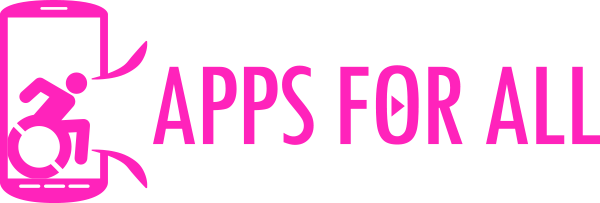The Australian Communications Consumer Action Network (ACCAN) welcomes the appointment of Senator Mitch Fifield to the role of Communications Minister. "As the peak organisation representing consumers and small business on telecommunications, we're looking forward to engaging with Minister Fifield on important issues that affect users," said ACCAN CEO, Teresa Corbin.
"We are pleased that Prime Minister Malcolm Turnbull has called for Australia to embrace the future and use digital disruption to our advantage. As a nation of early technology adopters, Australian consumers are keener than ever to join in and benefit from innovations that deliver better, more affordable and accessible communications choices."
For example, the establishment of the Digital Transformation Office is a great opportunity to be a world leader and ensure Government services are even more accessible as they move online. We are looking forward to helping ensure this initiative works to overcome any barriers for those unable to use or access the internet.
Read more: ACCAN welcomes appointment of new Communications Minister

The Australian Communications Consumer Action Network (ACCAN), along with Telstra, has today announced the winners of the second Apps For All Challenge at the 2015 ACCAN National Conference in Sydney. Launched last year, the Apps For All Challenge is Australia's only competition that awards the most accessible smartphone and tablet apps.
The Challenge awards apps in four categories. Winners were given a cash prize from Telstra and will receive promotion through Telstra's social media channels.
Read more: Winners of the 2015 Apps For All Challenge announced
The Australian Communications Consumer Action Network (ACCAN) has today kicked off its 2015 National Conference, Dollars and Bytes – Communications affordability now and tomorrow. The Conference, held in Sydney from 1-2 September, will explore the wide-ranging issue of affordability. Affordability of telecommunications services, along with accessibility and availability, are key focus areas for ACCAN.
Affordability is becoming increasingly important as access to telecommunications services is essential for full economic, social and cultural participation. The main method of communicating with many Government agencies is now through online channels. With the implementation of the Federal Government's Digital First Strategy, this is set to become even more widespread. The strategy will require all Government services and public interactions to be available online by 2017. The formation of the Digital Transformation Office (DTO) will help the Government implement this strategy. The inaugural DTO CEO, Paul Shetler, will deliver a presentation at the Conference.
Read more: ACCAN’s 2015 National Conference explores affordability issues
Last week the Indigenous Remote Communications Association (IRCA) and the Australian Communications Consumer Action Network (ACCAN) hosted an Indigenous Focus Day in Darwin, Northern Territory. The event took place alongside the Broadband for the Bush Forum IV. It attracted 75 participants and focused on identifying the obstacles to digital inclusion and the opportunities that arise from being connected. Participants were representatives from the Indigenous community, as well as delegates from community organisations from across Australia.
The Focus Day consisted of an opening address from Joe Morrison, CEO of Northern Land Council, some shorter presentations and facilitated breakout sessions. Key themes explored were affordability, accessibility, awareness and appropriateness of telecommunications services. The breakout sessions featured speakers covering topics such as costs of phone plans, satellite internet services, broadband for schools and how technology is improving the lives of remote Indigenous communities.
Read more: Indigenous Focus Day explored obstacles to digital inclusion
A survey commissioned by the Australian Communications Consumer Action Network (ACCAN) found that real complaint levels are still high despite decreasing escalated complaints reported by the Telecommunications Industry Ombudsman (TIO). The survey found that 46 per cent of telco consumers reported having a problem with their phone or internet provider in the last year. This represents more than 8.5 million Australians. The survey was completed by Galaxy Research with 1100 respondents, representative of the Australian population. The 2015 survey repeated the questions of a survey ACCAN commissioned in 2010.
According to the survey, around one third of respondents (38 per cent) who had a problem with their phone or internet service, complained to their provider and were dissatisfied with the response from the telco. However, only nine per cent of these consumers escalated their complaint to the TIO. This suggests that phone and internet providers have not improved the proportion of complaints that are resolved. ACCAN is calling on the telcos to publish their complaint data so the problem areas can be identified.
The Australian Communications Consumer Action Network (ACCAN) has today announced the successful Grants Scheme projects for the 2015 Round. The ACCAN Grants Scheme funds projects which undertake research on telecommunications issues, represent consumers or create educational tools which empower consumers to derive the greatest benefit from telecommunications products and services.
The Grants Scheme is competitive and this year received 66 applications from a range of research, private sector and community organisations.
"This year's applications represented a fascinating blend of emerging technology as well as long-standing consumer challenges," said ACCAN Deputy CEO, Narelle Clark. "We congratulate the successful candidates and look forward to working with them on these tremendous projects."
A new study launched today examines the barriers faced by many Deafblind consumers when accessing customer service call centres. The Assisted Access study by Able Australia, was funded through the ACCAN Grants Scheme and aimed to develop a model for Deafblind consumers to access their telco's customer service with ease and security.
Consumers who are Deafblind have both a significant hearing and vision loss. Current information and privacy practices usually require the customer to interact using their own voice – not a facilitator's – and therefore prevent these consumers from easy phone access to their telcos. Text based alternatives are often also inadequate when using specialised screen set ups and braille based systems.
Read more: Study proposes a new model for Deafblind access to telco services
